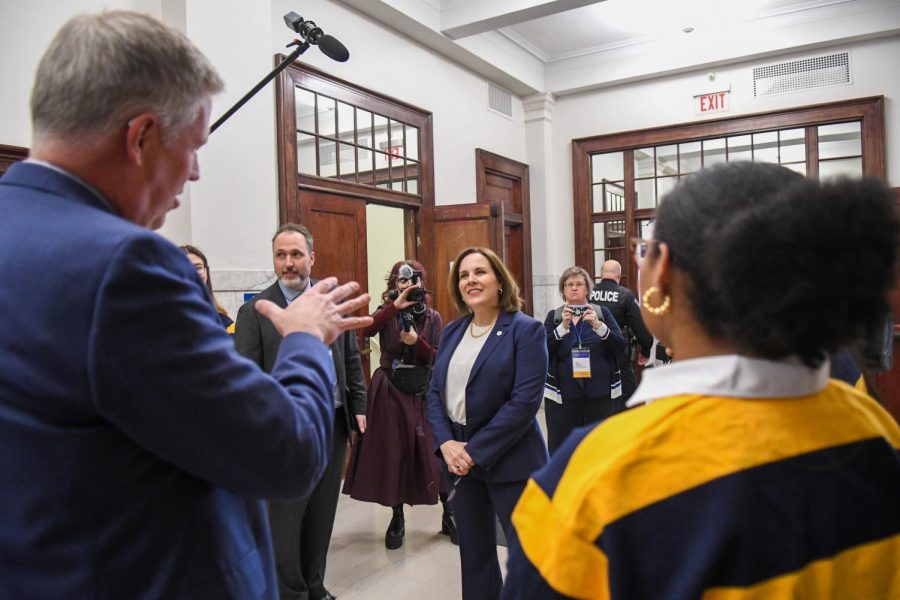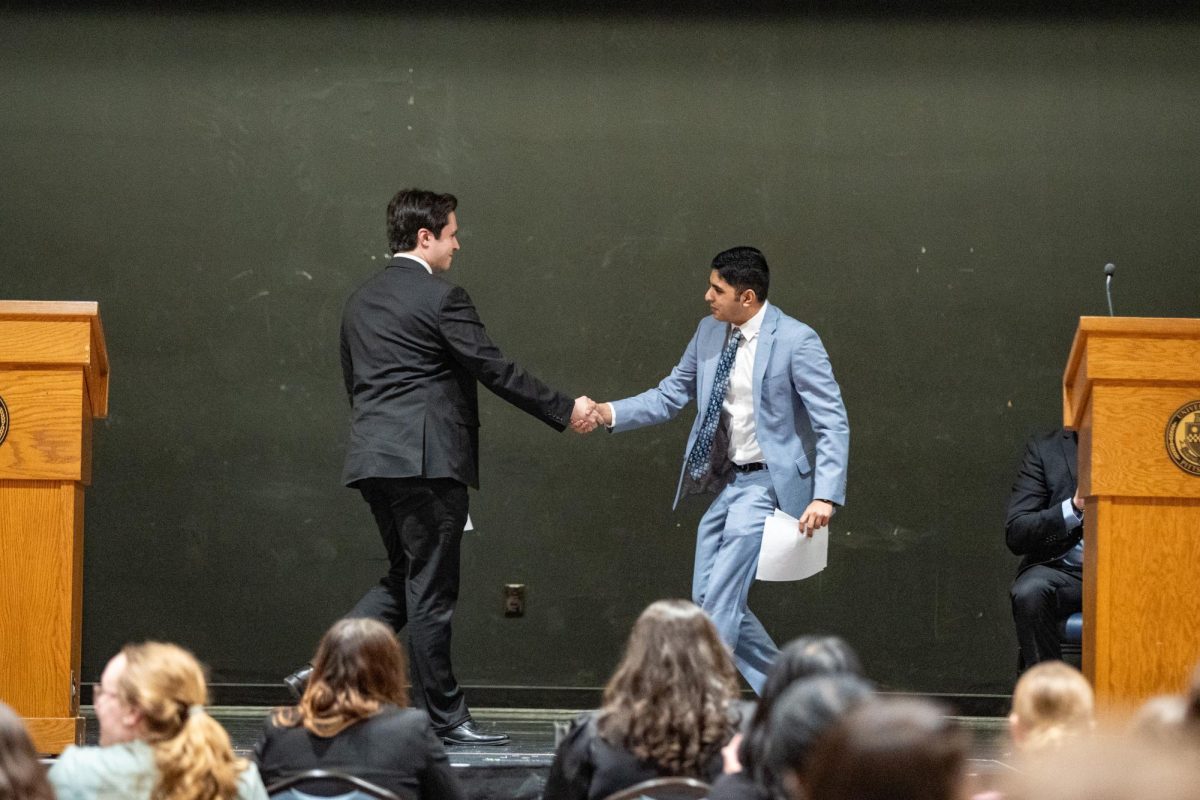Pitt’s chancellor-elect will receive a $950K salary
Joan Gabel walking through Pitt’s campus on Monday after being named the University’s next chancellor.
April 3, 2023
Pitt’s new chancellor-elect Joan Gabel will receive a $950,000 annual base salary, marking a 36% increase compared to Patrick Gallagher’s current salary.
The Board of Trustees’ Compensation Committee voted on this salary Monday afternoon, which will take effect July 17. She’ll receive other compensation as well, including an annual payment for her retirement equal to the positive difference between $150,000 and University contributions, $100,000 retention payments on the third, fourth and fifth anniversary of her start date and $5,000 for tax preparation and planning services.
Pitt’s Board of Trustees named Gabel as Pitt’s chancellor starting in July. The chancellor — the University’s chief administrator — oversees 34,000 students and 14,000 faculty and staff members across five campuses. Gabel is the 19th chancellor in Pitt’s history, replacing Gallagher who has served in the position since 2014. She’s also the first woman to have the job.
Gallagher received a salary increase of about $28,500 this year, to earn $698,202. Ten top Pitt leaders also got a 4.25% salary increase this year — the first pay bump for senior officers since 2020 due to uncertainty surrounding the COVID-19 pandemic. Gallagher and other senior members donated part of their 2020-21 salaries for student scholarships.
Pitt’s in-state tuition increased by 3.5% this year, while out-of-state tuition increased by 5.5%.
Board of Trustees Chair Doug Browning said the University’s compensation consultants found that Gallagher’s base salary was below the 50% level of other public universities in the Association of American Universities. He said some peers had chief executives making $275,000 more in base salaries compared to Gallagher.
“We therefore knew that to attract the type of leader we believe this institution needed to continue to ascend to greater heights, it would be necessary to bring our new chancellor in at a salary that was significantly higher than that of Chancellor Gallagher,” Browning said.
Browning added that the board is “aware that many of our faculty and staff salaries need to be adjusted to remain competitive with our AAU peers, and we are committed to supporting the ongoing efforts of the administration to close the gap as soon as possible.”
Pay raises at Gabel’s previous job led to criticism from students, staff and faculty, reported The Star Tribune, because it came soon after employees were furloughed, three men’s sports programs were cut and tuition increased by 1.5%. She has served as the president and chief executive of the University of Minnesota System and Twin Cities campus since 2019.
In December 2021, Gabel’s base salary rose from $650,000 to $660,000. Another raise at the start of the following fiscal year in July 2022 increased it to $706,000. Further increases to her supplemental retirement contribution, an annual performance bonus and other allowances, meant her total compensation was about $1 million. Several members of UMN’s Board of Regents defended the pay raise, saying it’s in line with other Big Ten colleges and that women’s salaries are more commonly questioned.
Gabel also made a controversial decision to take a paid corporate board seat at Securian Financial, which has more than $1 billion worth of business with UMN. The seat came with $130,000 per year in compensation. It led the university to review its conflict policies, following outcry from the governor and state attorney general. She resigned from the position in January for “the best interest of the university.”
At UMN, Gabel oversaw the completion of a 10-year, $4 billion capital campaign as well as the NXT GEN MED, a collaborative program between Mayo Clinic, Google and the university. She previously served as the executive vice president for academic affairs and provost at the University of South Carolina from 2015-19, and was the dean of University of Missouri’s business school from 2010-15.




